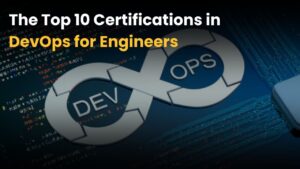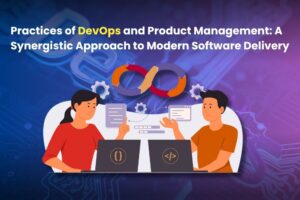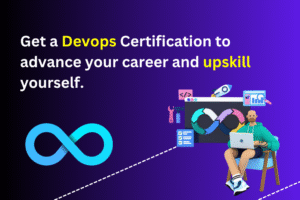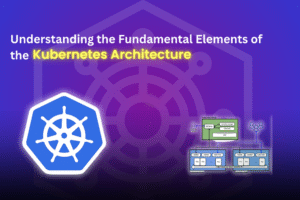What is DevOps?
DevOps is a set of technologies, processes, and culture models designed to improve team collaboration. It helps automate and integrate the software development process, allowing organizations to deliver services faster. Improve the process for customer satisfaction.
Why is DevOps Important?
- Accelerating Software Delivery: In the fast-paced technology world, organizations need to quickly release software and updates to stay competitive. DevOps processes enable organizations to streamline and improve product delivery, reducing the time it takes to move from development to production.
- Encourage innovation and growth: DevOps is critical to your company because, among other things, it allows you to speed up software development through process improvements, automation, and release planning. Applications are ready to use quickly thanks to integrated development and teamwork. This is important because the success of organizations is determined by their ability to innovate faster than their competitors.
- Security Integration: DevSecOps, the DevOps deployment, integrates security into the DevOps pipeline. While security threats will continue to grow, DevOps will play a key role in 2024 since security is a high priority from the very beginning of the software development process.
- Cost Efficiency: By automating manual tasks and optimizing resource utilization, DevOps helps organizations reduce operating costs. This cost-effective service is increasingly important as companies seek to maximize their IT resources and maintain an advantage in a competitive environment.
What is the Role of a DevOps Professional?
DevOps professionals play a key role in bridging the gap between software development and IT functions to simplify and streamline software deployment and infrastructure management. Your role covers a wide range of applications and skills, and your primary goal is to foster collaboration, efficiency, and reliability throughout the lifecycle of software development and deployment. Here are some key DevOps professional practices:
- Collaboration: DevOps professionals facilitate collaboration and communication between development and operational teams. They work to break down silos and encourage cross-functional collaboration, ensuring that everyone is on track to achieve shared goals.
- Automation: They automate manual and repetitive tasks like software provisioning, application management, and deployment. Automation reduces the risk of human error and speeds delivery.
- Troubleshooting: When issues arise during production or deployment, DevOps professionals are responsible for identifying, diagnosing, and quickly fixing them to minimize downtime and negative impacts on users.
- Version management: DevOps professionals support version control of code and application files, help track changes, collaborate on common features, and maintain change information.
Here are a few more functions they perform:
- Project management
- Improved code
- Working on Software Testing
- Good software security practices
- Communicate with partners
How to Become a DevOps Professional?
The career path for DevOps professionals is very challenging. As a DevOps professional, you should start by taking steps to connect all aspects of software design and development and integrate them into a single management system. Senior DevOps engineers often provide tips for using information systems. They also code and ensure smooth deployment of the software. Here’s a step-by-step guide to help you become a DevOps professional: 1.Understand DevOps principles: Start with a solid understanding of the key concepts and benefits of DevOps, including collaboration, automation, integration, continuous delivery, and customer focus. This course will help you on your DevOps journey. 2.Start with the fundamentals: Before jumping into DevOps tools and applications, have a solid foundation in IT fundamentals, including workflows, networks, and version management. You must be proficient in Linux and Windows environments and understand how systems and networks work. 3.Develop Programming and Scripting Skills: Knowledge of programming and scripting languages commonly used in DevOps, such as Python, Ruby, Bash, or PowerShell. You need these skills to write automation scripts, work with task management tools, and more. 4.Explore Cloud Computing: Build proficiency in cloud services like AWS, Azure, or Google Cloud through practical experience. Cloud services play an important role in modern DevOps processes, so it’s important to understand how to use, manage, and operate the cloud. 5.Hand-on experience: Apply what you have learned by working on real projects or individual projects. Build your own DevOps environment, experiment with tools and processes, and constantly strive to improve your skills 6.Certificates: Consider earning DevOps-related certifications such as AWS Certified DevOps Engineer, Docker Certified Associate, or Kubernetes online certifications. These certifications will help validate your skills and knowledge.
Eligibility for DevOps Certification
DevOps is a multidisciplinary approach that requires a combination of technical and non-technical skills. To qualify for a position in DevOps, you must have a good understanding of software development and IT operations, as well as technology and writing skills. In addition, good communication and collaboration are also important because DevOps is teamwork for software delivery. DevOps professionals come from different backgrounds and have a variety of skills. However, there are several qualifications to work in DevOps. These include:
- Possess knowledge of at least one programming language
- Can Understand software development methods such as Agile or Scrum
- Experience with automation and configuration management tools such as Ansible or Puppet
- Understand networks and infrastructure
- Anyone with these skills can switch to DevOps and make a career in DevOps. So, the answer to the question of who is qualified for DevOps is anyone who has these skills. This could be a network engineer, network automation engineer, software engineer, or someone with the skills mentioned above. Now, if you want to become a DevOps engineer, you can start your career journey from Fresher to expert. Join DevOps Training in Pune and start your journey today.
Top DevOps Career Opportunities.
1.DevOps Engineer:
A DevOps engineer is responsible for the operation, optimization, and reliability of software applications, infrastructure management, and system maintenance. They work closely with development teams and work to improve organizational performance, sustainability, and innovation.
Years of experience required:
- Entry-Level: 0-2 years
- Mid-Level: 2-5 years
- Senior-Level: 5+ years
Average annual salary:
- Entry-Level: ₹4 lakh to ₹8 LPA.
- Mid-Level: ₹8 lakh to ₹15 LPA.
- Senior-Level: ₹15 lakh to ₹30 lakh or more per annum.
Duties and responsibilities:
- Develop, maintain, and improve DevOps processes and procedures.
- Collaborate with development, testing, and operations teams
- Writing deliverables, debugging, and testing scripts.
- Create a reusable code organization.
- Collect feedback from developers about quality software.
- Fix the problems and make the project successful.
- Adapt to change using Agile principles.
- Ensure proper operation of computer systems and networks.
- Promote a culture of timely and quality software development.
Key skills required:
- Knowledge of scripting languages such as Python, Ruby, or JavaScript.
- Proficiency in handling configuration management tools, automation frameworks, and Linux environments.
- Most require at least a bachelor’s degree in a related field.
2.DevOps Architect
DevOps architects play a key role in integrating development and operational processes, operational processes, security improvements, and optimization.
Years of experience required:
- Entry-Level: 0-2 years
- Mid-Level: 2-5 years
- Senior-Level: 5+ years
Average annual salary:
- Entry-Level DevOps Architect: ₹15 lakh to ₹30 LPA.
- Mid-Level DevOps Architect: ₹30 lakh to ₹60
- Senior-Level DevOps Architect: ₹60 lakh to 80 or more per annum.
Duties and responsibilities:
- Design and build a DevOps organization.
- Customize and implement DevOps practices to meet specific needs.
- Automate the process using the right tools to make the job easier.
- It encourages efficient and integrated operational development.
- Manage and lead a good team.
- Solving development and operational issues.
- Use architecture ideas comprehensively.
- Create a growing environment for growth.
- Monitoring and improving technological systems.
Key skills required:
- Evaluation of new architectures and innovation processes.
- Increase development and collaboration through new channels.
- Expertise in automation tools and CI/CD concepts.
- Experience in related coding languages.
- Familiarity with project management tools (Chef, Puppet, Ansible).
- Leadership and teamwork skills.
- Data movement and processing solutions.
- Experience in Unix/Linux environments and coding languages (Shell, Perl, Python).
- Transmission Pipeline Evaluation and Problems.
3.DevOps Release Manager
A DevOps release manager is a specialist responsible for overseeing and coordinating software application releases and updates in a DevOps environment. Your primary role is to ensure that software releases are delivered efficiently, effectively, and with minimal disruption to production systems. The License Manager oversees the coordination and optimization of the software release process to ensure timely and quality delivery.
Years of experience required:
- Entry-Level: 0-2 years
- Mid-Level: 2-5 years
- Senior-Level: 5+ years
Average annual salary:
- Entry-Level: ₹5 lakh to ₹10 LPA.
- Mid-Level: ₹10 lakh to ₹20 LPA.
- Senior-Level: ₹20 lakh to ₹40 LPA.
Duties and responsibilities:
- Manage risks and resolve issues affecting releases, quality, and schedule.
- Set up viewports and browse files and objects.
- Collaborate with working groups to discuss and debate initiatives.
- Monitor progress, budget, and quality standards for timely software releases.
- Create and manage release schedules, deployment plans, and automation tools.
- Analyse results and ensure clarity of requirements throughout the project flow.
Key skills required:
- Strong programming skills and property management knowledge.
- Expertise in version control tools and configuration management.
- Understand the software development life cycle.
- Excellent communication and analytical skills.
- Coordinating the various functions and needs of the team.
4.Software Developer
Software developers are responsible for collaborating with developers in creating algorithms and flowcharts and creating appropriate code as needed. They are also working on integrating third-party content and software applications. Their role is important in creating functional, easy-to-use software that meets the needs of a company, organization, or end user.
Years of experience required:
- Entry-Level: 0-2 years
- Mid-Level: 2-5 years
- Senior-Level: 5+ years
Average annual salary:
- Entry-Level: ₹3 lakh to ₹7 LPA.
- Mid-Level: ₹7 lakh to ₹15 LPA.
- Senior-Level: ₹15 lakh to ₹30 lakh or more per annum.
Duties and responsibilities:
- Collaborate with developers to create algorithms and diagrams.
- Produce clean, usable code according to specifications.
- Integrate third-party software and services.
- Identify and deliver programs and systems.
- Troubleshoot, troubleshoot and modify existing software.
- Collect and analyse user feedback.
- Recommend and make improvements.
- Create technical documents for use and publication.
Key skills required:
- Practical experience in roles like software developer or software engineer
- Understanding of agile development methodologies
- Proficiency in software design and development within a test-driven development framework
- Familiarity with coding languages (e.g., C++, Java, JavaScript) and frameworks/systems (e.g., AngularJS, Git)
- Competence with databases and object-relational mapping (ORM) frameworks (e.g., Hibernate)
- Strong problem-solving skills if you want to master you skill. Join our DevOps Foundation Certification Course.
5.Security Professional
Security experts are responsible for the security of facilities and employees, overseeing all security measures implemented in the company by reviewing inspection stations and monitoring entry, exit, and access to control attackers.
Years of experience required:
- Entry-Level: 0-2 years
- Mid-Level: 2-5 years
- Senior-Level: 5+ years
Average annual salary:
- Entry-Level: ₹4 lakh to ₹6 LPA.
- Mid-Level: ₹6 lakh to ₹10 LPA.
- Senior-Level: ₹10 lakh to ₹20 lakh or more per annum.
Duties and responsibilities:
- Develop infrastructure and security architecture designs and implementation plans and share implementation with project teams
- Work with development teams to prevent the impact of bad actors, including bots and crawlers
- Script automation (BASH, python) and infrastructure as code (IAC) including CloudFormation, Ansible, and Terraform
- Learn about jobs and explore new technologies with little supervision
- Provide on-call infrastructure and application support and schedule development support.
Key skills required:
- Works with cloud services such as AWS (preferred), GCP, or Azure,
- Experience with infrastructure such as CloudFormation, Ansible and Terraform
- Experience with containers and container systems such as Docker and Kubernetes/EKS
- Knowledge of security disciplines related to security management, threat modeling, and risk assessment
- Solid knowledge of LINUX and application frameworks (SpringBoot, Rails)
- Experience with application load balancing such as F5, AWS ALB, Nginx
- Experience with CI/CD tools like Jenkins, ArgoCD, TeamCity, GitHub Work, XebiaLabs Release
- Experience with programming languages such as Java, Ruby, or Go is preferred
Please note that these experience levels and salary figures are approximate and can vary significantly based on several factors, including the specific location (with higher salaries in major tech hubs), the industry (with IT and technology sectors often offering higher salaries), the size and reputation of the employer, and the demand for DevOps Architects in the region. if you plan to choose your career in any one of theses, Join Now and Bridge the Gap of Your DevOps Knowledge by joining DevOps Online Certification Course in Pune.
How to advance your career in DevOps?
Advancing your DevOps career involves continuous education, skill development, and gaining experience. Here are a few steps that will help you move your DevOps project forward: DevOps Certificate- The best way to develop now is to take a course that follows industry standards to teach you everything you need to become a professional. 3RI Technologies DevOps certification courses can help you develop your DevOps career. Continuing education- The only way to get ahead in any profession today is to keep up with the latest trends and technology in the workplace. Even as you progress as a professional in your DevOps career, remember that improving your skills is always a good thing. Therefore, from time to time take courses related to your workplace, even if you are a professional. This will not only help you stay up to date with all the developments in your field but will also help you land a better job and salary.
Conclusion
The above discussion of the DevOps domain is proof that DevOps is very useful for today’s organizations and its demand will only increase. It is a method of continuous improvement and integration within an organization. As a DevOps professional, you will only get results and progress in your work and never look back due to its ever-changing and evolving nature. Make sure you do everything you can to use your DevOps certification to excel in your career; by visiting DevOps Interview Questions and Answers you can Expand your understanding about DevOps.







